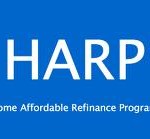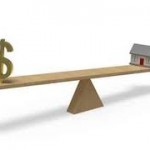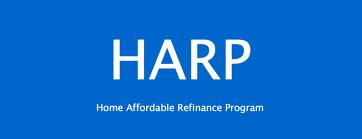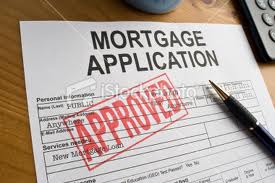The FHA Streamline Refinance program.
No appraisal, no closing costs, easy qualifying, and even skip a month of payments.
News and information on refinancing your home in MN or WI
No appraisal, no closing costs, easy qualifying, and even skip a month of payments.
Minneapolis, MN: VA Home Loans In MN and WI are probably the coolest mortgage loan lenders offer.  It is available both while serving our country and after they are discharged.
It is available both while serving our country and after they are discharged.
Upon a veterans return, hey usually are looking to re-establish themselves the the communities that they will be returning to. This means that many of them will be looking to purchase a home that they can settle in and raise their families. A VA Mortgage can assist our Veterans in making that transition.
VA Mortgages provide our Veterans with two major advantages that other Mortgage programs do not have.
VA Loans require no down payment, and have no mortgage insurance, plus you can roll all your closing costs into the loan. This makes for one heck of a great first-time home buyer deal for military veterans wanting to buy a home! The country appreciates your service. This is one way we pay you back. Today mortgage rates on VA loans are very low, making homes even more affordable.
VA Mortgage benefits for a Veteran:
A VA Streamline Refinance is similar to the FHA Streamline Refinance. It is officially known as a IRRRL loan (interest rate reduction refinance loan) because of the money you can save by lowering your monthly interest rates. It was created by the VA in an effort help our veterans secure the lowest interest rate possible. This VA loan process is done quickly, with minimal hassle so our veterans can save immediately.
Those who are eligible:
Minneapolis, MN: As anticipated, Democratic Sens. Robert Menendez, NJ, and Barbara Boxer, CA, this week reintroduced a bill that could spur more refinances.
 The Responsible Homeowner Refinancing Act, (AKA HARP 3) among other things, has a stated goal of relaxing requirements for borrowers to refinance and would extend the Home Affordable Refinance Program (HARP) for an extra year through 2014. It is currently set to expire December 31, 2013.
The Responsible Homeowner Refinancing Act, (AKA HARP 3) among other things, has a stated goal of relaxing requirements for borrowers to refinance and would extend the Home Affordable Refinance Program (HARP) for an extra year through 2014. It is currently set to expire December 31, 2013.
Currently, the HARP Refinance program only allows people who have a loan owned by Fannie Mae or Freddie Mac to refinance an underwater home. HARP 3 would allow ALL underwater homes to be refinanced.
Stay tuned for more details.
St Paul, MN: Virtually, all homeowners have lost value on their homes in recent years. For many, this has created some challenges to refinancing and taking advantage of today’s super low mortgage interest rates.
There are a few programs with can help, depending on what type of mortgage loan you have today. May people have successfully used program like HARP (Home Affordable Refinance Program), the FHA Streamline Refinance, or even the VA Streamline refinance known as an IRRRL loan.
Sadly, not everyone fits the criteria. Therefore Washington has been floating the idea of an expanded HARP 3 Refinance Program. It doesn’t exist yet, and may never exist… But if it does, here is what it may look like:
There are some basic criteria for the #MyRefi or HARP 3 refinance program:
This new HARP 3 refinance program proposal mirrors the current HARP 2.0 refinance loan program (possible no appraisal, less document, etc), except it would potentially also allow any underwater home owner, not just those who have a loan owned by Fannie Mae or Freddie Mac.
Try out the governments “Would I qualify for a refinance” below..
What clients and Real Estate Agents Don’t Understand About Appraiser Independence
Minneapolis, MN: Real Estate Agents constantly call our mortgage office to ask if an Appraisal was ordered, or if it is completed yet.
 The first question is pretty silly… Of course it was. The second question is tougher to answer until the completed appraisal physically shows up on the lenders desk.
The first question is pretty silly… Of course it was. The second question is tougher to answer until the completed appraisal physically shows up on the lenders desk.
Recent lender rules require what is known as “Appraiser Independence”. This is a double down on the old rules that no one is allowed to influence or pressure the appraiser to obtain any pre-determined value on the home. The rules also means that no one who will be compensated on the file can have anything to do with picking the appraiser. It has to be totally blind and randomly assigned. This is very different from years past where the client or the Loan Officer could pick any appraiser they wanted.
Once the appraisal has been ordered, there are varying degrees of what the Loan Officer may or may not know about the status of the appraisal. Most mortgage companies use a middle company, known as an AMC, or Appraisal Management Company, to handle all aspects of the appraisal. This easily means the lender will meet the “independence” guidelines. Some AMC’s are better than others in letting the lender know the status, giving them the expected date the appraiser will visit the property, and the expected appraisal completion date. With many others, the lender is completely in the blind. In the vast majority of cases, I don’t even know who the appraiser is until the appraisal is completed.
To further complicate the issue, while it is technically possible for a Loan Officer to speak to an appraiser on a very limited number of questions, the vast majority of lenders completely forbid this contact to avoid even the remote likelihood of influence complicity. It is much easier to respond to regulators that “our loan officers are forbidden”, then to claim they didn’t do anything wrong.
As a mortgage lender, it is very frustrating when real estate agents constantly bombard me with appraisal question. If I know, I will tell you. Do not yell at the Loan Officer if they don’t know the answer or say they can not talk to the appraiser.
Minneapolis, MN: As mortgage interest rates drop, many people believe that no cost loans, and refinancing multiples times is a game winning strategy. People who do this are known as “serial refinancers.”
A Wall Street Journal report shows about 2.2 million people have refinance their current home loan at least twice since 2009.
All loans have closing costs, so an important aspect to refinancing is the question, “is their a benefit?” Refinancing generally is down to obtain a lower mortgage interest rate, and hence, a lower mortgage payment. Some people also lower their term, going from maybe a 30-year loan to a 20-year, 15-year, or even a 10-year.
 How do you pay closing costs?
How do you pay closing costs?There are a few ways to pay loan closing costs: Cash, roll into new loan amount, hide in interest rate, or a combination of any of these options. The most common way is rolling into a higher new loan amount, but a loan of people roll at least some, if not all into the interest rate. This achieves a low cost, or no closing cost refinance.
If done smartly, a serial refinancier can dramatically improve their situation and reduce the long-term cost of their home loans. If done wrong, while you may be lowering your payment today, you never get anywhere as you constantly reset your loan back to a 30-years.
Many people believe you must meet a certain percentage before you should refinance. A common number I hear is 2% lower. I couldn’t disagree more! The formula is simple, and could be significantly less of a percentage. Simply divide the savings by the cost. If you are likely to be in the home significantly longer than the breakeven period, it probably makes sense to refinance.
You have everything to gain and nothing to lose to see significant savings in your mortgage payment with today’s historic low rates? Contact a local NON-Bank licensed loan officer – give them a full mortgage application, and let them crunch your numbers. If may be well worth refinancing again, even if you just did it a short time ago.
As a side note… Contrary to popular belief. In most cases, the WORST place to refinance is with your CURRENT Lender. Feel free to talk to them, but get a second opinion!
 Minneapolis, MN: The Federal Housing Administration (FHA) has announced that sometime in 2013, all new FHA insured mortgage loans will now require the monthly mortgage insurance be on the loan for the entire LIFE OF LOAN.
Minneapolis, MN: The Federal Housing Administration (FHA) has announced that sometime in 2013, all new FHA insured mortgage loans will now require the monthly mortgage insurance be on the loan for the entire LIFE OF LOAN.
The proposed rule is NOT official — Yet.
Currently, FHA mortgage insurance premiums drop from FHA insured loans once the loan balance reaches 78% of the original balance and the home owner has had the loan at least 5-years.
FHA has not giving an official starting date yet, but it will be on all NEW loans going forward, and WILL NOT effect existing FHA insured home loans. Any existing FHA insured loan will still be able to drop mortgage insurance (PMI).
Most NEW FHA insured loans are just 3.5% down payment – therefore the mortgage insurance is currently 1.25% of the loan amount monthly. FHA has also announced that in 2013, the cost of the insurance will increase to 1.35% monthly.
As an example, on a $100,000 FHA insured loan, the homeowner will pay $112.50 in mortgage insurance every month for the entire 30-year loan.
For those capable, meeting both the higher credit score and underwriting guidelines, moving to a conventional loan with 5% down is going to result in very significant savings over an FHA mortgage loan going forward.
FHA has indicated they are making this move to increase their capital reserves after suffering major losses due to foreclosures and the mortgage market meltdown. The vast majority of the losses are attributed to loans written from 2007 – 2009 as lenders moved marginal home buyers into FHA loans after sub-prime loans disappeared from the market in 2007.
FHA home mortgage loans will still remain a great option for many buyers, but clearly FHA has indicated they do not want to be the loan for everyone.
Story from KARE TV in Minneapolis / St Paul, MN. Story touches on it lightly, but misses the major issue that new mortgage lender / appraiser rules put into place in 2009, known as HVCC (Home Value Code of Conduct), now simply known as the Appraiser Independence rules, are the real problem. Appraisers are the holders of the countries equity, and the new rules have caused trillions of dollars in lost equity.
What do you think?
 Minneapolis, MN: Mortgage rates are so low that it may seem like a great time to get a mortgage. For banks, however, it probably is the greatest time ever.
Minneapolis, MN: Mortgage rates are so low that it may seem like a great time to get a mortgage. For banks, however, it probably is the greatest time ever.
In the old days, there used to be a word for this kind of thing: price gouging.
And who is doing the gouging? Mainly, Wells Fargo and JPMorgan Chase. In the third quarter, reported in the last several weeks, both banks earned robust profits from the mortgage business.
So… Got a great refinance quote, but you are holding out for a lower rate before locking? Why this isn’t a good idea…
Has your Minneapolis area home LOST VALUE? HARP 2.0 can help you refinance!
 Minneapolis, MN: What is HARP? HARP stands for Home Affordable Refinance Program, an initiative from the Federal Housing Finance Agency (FHFA) to assist homeowners whose homes are now worth less than what they owe. And just recently, new enhancements to the program were announced, making refinancing options available again to an estimated one million more homeowners.
Minneapolis, MN: What is HARP? HARP stands for Home Affordable Refinance Program, an initiative from the Federal Housing Finance Agency (FHFA) to assist homeowners whose homes are now worth less than what they owe. And just recently, new enhancements to the program were announced, making refinancing options available again to an estimated one million more homeowners.
If you are a responsible homeowner but the current marketplace loan-to-value (LTV) requirements and need for a new appraisal have made it difficult or impossible for you to refinance at today’s record low interest rates, lenders may be able to help you without needing a new appraisal or meeting previous LTV requirements.
The HARP “Special Refinance Program,” is designed to help up to 9 million American families refinance their loans to a payment that is affordable now and into the future. This program is aimed at helping responsible homeowners “refinance” their loans to take advantage of historically low interest rates. Here are some common Questions and Answers about the Refinancing Initiative in the program.
If you answered YES to these questions, Click HERE to Apply for a HARP Refinance in the Minneapolis, MN area.
St Paul, MN: We get it. You want the lowest mortgage interest rates. What you may not realize is that waiting for that low rate could make you your own worst enemy.
 When shopping mortgage rates, understand that the quote you got yesterday or last week is meaningless. Interest rates can change throughout the day and that may cost you dearly while you think about it. Face it, rates change daily – sometimes even multiple times in one day.
When shopping mortgage rates, understand that the quote you got yesterday or last week is meaningless. Interest rates can change throughout the day and that may cost you dearly while you think about it. Face it, rates change daily – sometimes even multiple times in one day.
Did you know you can pick any interest rate you want? Do you know the difference between the rate and pricing for the rate? Are you willing to pay the price to get a rate? Do you want lower closing costs? Has your loan officer explained these options and differences?
1. Call a local licensed loan officer (not a bank) and begin discussing the refinancing of your home, along with the best rate and cost options to fit your needs.
NOTE: It goes against the grain of what most people think, but your current lender is almost without fail, the most expensive refinance option.
2. If the refinance rate and savings makes sense, start an application with your local lender, but don’t pay any application fee. You may have to pay a small fee to have them pull your credit. If they request/demand an application fee, or have cancellation fees you should select another lender no matter how great their interest rate quote appears.
3. Once the lender has you in application you’re now in a position to lock in a rate that meets both your payment and equity objectives and in the interim you can begin gathering all the needed items to seek an approval for you loan. Starting an application and signing the initial disclosures does not constitute a contract. You are under no obligations at this time to continue. It does however, allow for an approval, which simplifies the entire process and puts you in the best position of strength for obtaining and locking your rate or making an offer on a new home.
Should you lock a rate, or hold out for something better?
We are asked this question an untold number of times a week. Everyone wants “the lowest rate” and no matter what great refinance rate I quote, human nature takes over. Everyone panics about locking today, because “what if rates go lower next week?” The first question to ask yourself is “Does the rate meet my payment objective?” If so, then lock, it really is that simple.
When the decision to lock has been made there are three possible outcomes;
So using the three outcomes above you only have a 33% chance of a rate improvement, and a 66% of no change or rates going higher. What kind of gambler are you?
Minneapolis, MN: Mortgage interest rates have been hovering at or near historic rates for sometimes now. Most everyone with a home loan is thinking of refinancing. There are many important items to consider, and an experienced, licensed mortgage loan officer should be more than willing to address all your concerns.
NOTE: Don’t confuse an unlicensed bank application clerk with a licensed mortgage professional.
 One major area to consider is the loan term, also known as loan amortization. This simply means “how many years” are you going to have the loan. The most popular loan term is still a standard 30-year loan, but you can also pick 10-year, 15-year, 20-year, and 25-year terms too. A few lenders, like Cambria Mortgage in St Paul, MN., also allow for any number of years from 8-years to 30-years. This is an excellent option if you have say, 22-years left and want a new 22-yr loan.
One major area to consider is the loan term, also known as loan amortization. This simply means “how many years” are you going to have the loan. The most popular loan term is still a standard 30-year loan, but you can also pick 10-year, 15-year, 20-year, and 25-year terms too. A few lenders, like Cambria Mortgage in St Paul, MN., also allow for any number of years from 8-years to 30-years. This is an excellent option if you have say, 22-years left and want a new 22-yr loan.
In refinancing, the amortization term question is simple. Do you want the smallest possible payment (30-yr), or do you want to pay it off faster with a shorter amortization term and a bigger payment.
BENEFITS: Longer loan amortization terms give you the smallest possible payment, but you pay dearly for that with having a mortgage forever, and paying huge amounts of interest.
Shorter loan amortization terms come with higher monthly payments, but you pay the loan off dramatically sooner and save possibly hundreds of thousands of dollars in interest.
BOTTOM LINE: Run a MORTGAGE CALCULATOR to see what payments would look like, then using the answers given, picking the right number of years in your loan amortization to fit you and your individual situation.
Freddie Mac today released the results of its Primary Mortgage Market Survey® (PMMS®), showing fixed mortgage rates holding steady from the previous week and remaining near their all-time lows. The average 30-year fixed-rate mortgage has been below 4.00 percent all but once this year and the average 15-year fixed, a popular choice among refinance borrowers, has been below 3.00 percent since the last week in May.
News Facts
Quotes
Attributed to Frank Nothaft, vice president and chief economist, Freddie Mac.
“Despite a lackluster August employment report, Treasury bond yields and mortgage rates were little changed this week with the financial markets speculating on further monetary stimulus from the Federal Reserve. The economy added 96,000 net new workers in August, while revisions subtracted 41,000 from the prior two months; manufacturers cut 15,000 employees in August which represented the largest decline since August 2010. Meanwhile, approximately 368,000 people left the workforce thereby lowering the unemployment rate to 8.1 percent.”
Freddie Mac’s survey is the average of loans bought from lenders last week, including discount points. Applicants must pay all closing costs at these rates. No cost loan rates higher.
Follow this link to view today’s MN and WI mortgage interest rates.
Saint Paul, MN: These are certainly trying times, and 70% of homeowners have some sort of financing on their home. The economy is hurting, and fear of job loss is on many minds. But what you should be doing in today’s market isn’t always clear.
The economy is hurting largely because of the initial wave of foreclosures and high gas prices of earlier in 2008. This has spilling over into all aspects of American lives, but is it really as bad as the constant beat of the media drum has one to believe?
Unemployment nationwide is averaging in the 8% range. This is significantly below the highs of years past. Foreclosures are still at historic high levels. These reports sound bad, but sit back and take a look at your own individual lives to examine if it really is bad for you and what you should be doing.
For example, while possible job loss is on a lot of minds, examine your own ability to market yourself? No job is guaranteed. If you did lose your job, how quickly can you replace it with a similar income, even if in a different field.
I am in the mortgage business, which clearly is suffering. I don’t worry about my home or income, because I know that if needed, I would take two or three jobs (even menial jobs) to always make sure my family has the three most important items: Shelter, food, and clothing. I know I can cut off cable TV, sell cars, cut expenses, and go into survival mode and that I will always be able to provide the basics.
If unemployment is averaging 8%, this means 92% of people are working. If foreclosures are averaging 10% of homes, this means 90% of people are OK. Turn off the TV, stop reading the paper. If you didn’t hear and read all the “bad news”, how would YOU personally view your situation?
BUYING A HOME: We all need a place to live. Home prices are extremely attractive, with great deals to be found everywhere. Mortgage rates are near historic lows. If you have OK or better credit, can come up with a small down payment, plan on staying in the home for at least four years, you are almost foolish to not buy something TODAY.
MODIFYING YOUR EXISTING LOAN: Many people bought homes they shouldn’t have and took risky loans to do so. Simply because a lender said yes, doesn’t mean you should have. Even more people who originally bought right used their homes as ATM machines, with a constant “cash out” refinance to pay credit cards and live lifestyles they couldn’t afford. I just spoke with a customer who bought this home 15-years ago for $85,000 who is losing it to foreclosure owing $300,000.
As little as two years ago, getting a bank to modify your loan was rare, and required you to be seriously behind in payments. Today, banks are very willing to help keep you in your home by modifying your payments. Workouts vary greatly depending on many variables, but the best ones we see lower your rate to around 3% for 5-years. Then the rates start adjusting back to where they originally were.
Unfortunately, we are seeing two problems emerge with modification. The first, is many people who got loan modifications fairly quickly fall behind again. While no one wants to lose a home, you must be realistic. Many times I speak with people where I calculate a payment based on ZERO percent, and they still tell me they can’t make the payment. Modifying only delays the inevitable. Getting out completely and into a situation you can afford releases untold weight off your shoulders.
REFINANCING YOUR EXISTING LOAN: Minnesota refinance rates are currently hovering near historic lows and it is well worth thinking about getting something better if you qualify. The basic criteria is that if you can lower your rate and you’ll be there long enough to at least break even on the closing costs, then it is a smart move.
Today, programs like VA IRRRL streamline refinances, FHA streamline refinances, and HARP 2.0 loans make refinancing available to most people.
So, should you be buying a home, modifying your existing loan, refinancing, or running away? It all depends, but I suggest we all stop living in fear, properly analyze our lives and personal situations, take our heads out of the sand, and make well educated decisions to put our lives in a better place.
An original article by Joe Metzler (C) 2012 Metzler Enterprises, LLC for www.MnRealEstateDaily.com
Can a HARP refinance help you?
Minneapolis, MN: A HARP refinance, in short, allows you to refinance with expanded eligibility requirements in regards to loan-to-value, or debt-to-income. That could mean that you are allowed to refinance, even though your home may have lost value., or the payment is a bit higher than normally allowed for your income. That flexibility allows many homeowners to refinance when they otherwise would not be able to. The idea is that even though the new loan might be a risky loan compared to other loans files with lower ratios it is still less risky than just leaving the home owner in their current position. Fannie Mae or Freddie Mac is on the hook for your loan if it’s a HARP refinance, so they want to allow you to get a lower payment and be in a position where you are less likely to default on your mortgage.
 What do I mean exactly by expanded eligibility?
What do I mean exactly by expanded eligibility?
Well, Fannie Mae and Freddie Mac have what we call Automated Underwriting Systems. Fannie Mae and Freddie Mac each have their own system and they have certain thresholds that are known in the industry. For instance, we know that a total debt ratio of 45% is a very important number. Why? Normally, if your total debt ratio is over 45% then you are denied. On new loans, these systems will both issue approvals up to a 50% total debt ratio but if you are over 45% you need to have what we call “compensating factors” to get approval. With a HARP loan this 45% number is basically thrown out the window and the Automated Underwriting Systems are much more flexible with their approvals.
Loan to value ratio is also very important in any loan transaction. The normal rules are if the property is your primary residence then you can have as little as 3.5% equity and you can refinance. If the property is a rental then you’ll need 25% equity to get a refinance. HARP allows you to be significantly underwater and still get the loan done. That means instead of having to have equity in the property you can have a property that is worth less than what you owe and still refinance.

MY LENDER said NO to HARP
Understand this important fact, Fannie Mae and Freddie Mac do NOT do loans. They BUY loans from lenders. Not all lenders feel the same about the risk to them about doing HARP refinances. Most lenders are very conservative today. Keep in mind that lenders can have “overlays” to the basic HARP guidelines that restrict what that company decides to refinance. You don’t have to go through your current lender to get a HARP 2.0 refinance done. Shop around to find the best HARP mortgage interest rate just like you would with any other refinance. And good luck!
An original article by Joe Metzler (C) 2012 Metzler Enterprises, LLC for www.MnRealEstateDaily.com